The best way to go is on your own and avoid the tour groups....that way you get to meet the people.Yes, you must. Once you do, you will kick yourself for waiting. And although you may find info to the contrary, it can be less expensive than Rome, Paris and other parts of Europe.
Navigation
Install the app
How to install the app on iOS
Follow along with the video below to see how to install our site as a web app on your home screen.

Note: This feature currently requires accessing the site using the built-in Safari browser.
More options
You are using an out of date browser. It may not display this or other websites correctly.
You should upgrade or use an alternative browser.
You should upgrade or use an alternative browser.
Your Favorite Things About Israel
- Thread starter Sixties Fan
- Start date
The best way to go is on your own and avoid the tour groups....that way you get to meet the people.
Probably true, but when time is limited, one gets to see a lot more in an organized tour.
Sixties Fan
Diamond Member
- Mar 6, 2017
- 53,546
- 10,411
- 2,140
- Thread starter
- #4,705

OFF THE BEATEN TRACK: 5 Exotic Animals That Once Roamed the Land of Israel | United with Israel
For thousands of years, from Biblical times until fairly recently, Israel has hosted some of the most exotic animals in the world, worthy of any safari!
Sixties Fan
Diamond Member
- Mar 6, 2017
- 53,546
- 10,411
- 2,140
- Thread starter
- #4,707
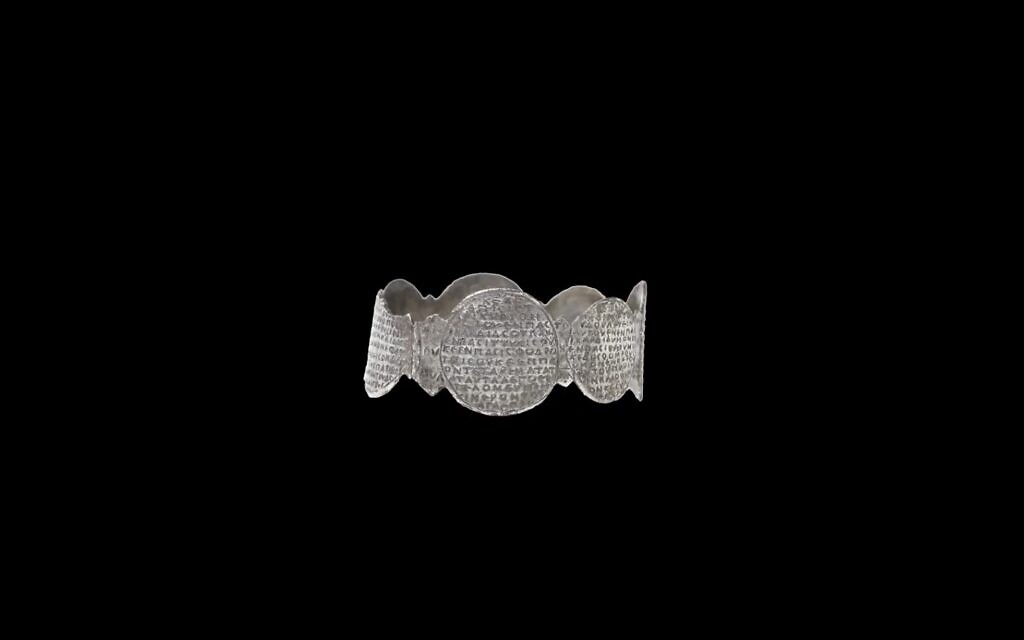
Hear, O Israel: There are magic powers in the Shema
An Israel Museum exhibit takes a deeper look at amulets inscribed with the elemental Jewish prayer
RE: Your Favorite Things About Israel
SUBTOPIC: The Shema
𓅂 Sixties Fan, et al,
Some people say that "The Shema" is the most important component in "The Torah." If you take nothing else away from The Torah, it should be the Shema.
The oddity in the Jewish faith.
The Shema (Perpetuation of the Faith) dates back to the time of The "Old Testament" ("Numbers" and "Deuteronomy"). This is one of a group of prayers, invocations, or solemn expressions of gratitude made to the Supreme Being. Archeologists have found such invocations inscribed in bracelets, amulets, talismans, etc, and cornerstones in excavations and archeological surveys (dig sites). What I find interesting is that the tradition of creating modern-day bracelets, amulets, and talismans has almost faded away entirely. Even in the Christian faiths, you have rarely seen jewelry with (suitable for semi-formal wear) these days with decorative prayer inlays. You will see Wiccans openly display such bracelets, amulets, talismans (some with diamond and gemstones) but seldom in the Abrahamic Faiths. I have even seen Wiccan wear ornamental neck collars and ankle chains that proclaim their allegiance (ownership) to their diety. I have never seen a similar piece of dress jewelry for any of the Abrahamic Religions. You will see necklaces with the Star of David, a Christian Cross, or a Muslim Crescent on a small gold chain. But that is about it. But, unlike Wiccans, you don't see such Abrahamic Religions demonstrating their devout devotion and openly expressing the deity as their master. This is an unusual change in the last millennium (a complete reversal since the 16th Century and the great witch hunts).
As with all things, there are anecdotal examples like Coptic Talismans with beads, Chiastolite Pendants, and Malachite Crystal Hearts. But again, nothing on the order of an invocation inscription. That makes any archeological find all that much more exciting and a dramatic scholarly find.

Most Respectfully,
R
SUBTOPIC: The Shema
𓅂 Sixties Fan, et al,
Some people say that "The Shema" is the most important component in "The Torah." If you take nothing else away from The Torah, it should be the Shema.
(COMMENT)
Hear, O Israel: There are magic powers in the Shema
An Israel Museum exhibit takes a deeper look at amulets inscribed with the elemental Jewish prayerwww.timesofisrael.com
The oddity in the Jewish faith.
The Shema (Perpetuation of the Faith) dates back to the time of The "Old Testament" ("Numbers" and "Deuteronomy"). This is one of a group of prayers, invocations, or solemn expressions of gratitude made to the Supreme Being. Archeologists have found such invocations inscribed in bracelets, amulets, talismans, etc, and cornerstones in excavations and archeological surveys (dig sites). What I find interesting is that the tradition of creating modern-day bracelets, amulets, and talismans has almost faded away entirely. Even in the Christian faiths, you have rarely seen jewelry with (suitable for semi-formal wear) these days with decorative prayer inlays. You will see Wiccans openly display such bracelets, amulets, talismans (some with diamond and gemstones) but seldom in the Abrahamic Faiths. I have even seen Wiccan wear ornamental neck collars and ankle chains that proclaim their allegiance (ownership) to their diety. I have never seen a similar piece of dress jewelry for any of the Abrahamic Religions. You will see necklaces with the Star of David, a Christian Cross, or a Muslim Crescent on a small gold chain. But that is about it. But, unlike Wiccans, you don't see such Abrahamic Religions demonstrating their devout devotion and openly expressing the deity as their master. This is an unusual change in the last millennium (a complete reversal since the 16th Century and the great witch hunts).
As with all things, there are anecdotal examples like Coptic Talismans with beads, Chiastolite Pendants, and Malachite Crystal Hearts. But again, nothing on the order of an invocation inscription. That makes any archeological find all that much more exciting and a dramatic scholarly find.
Most Respectfully,
R
Last edited:
Sixties Fan
Diamond Member
- Mar 6, 2017
- 53,546
- 10,411
- 2,140
- Thread starter
- #4,710
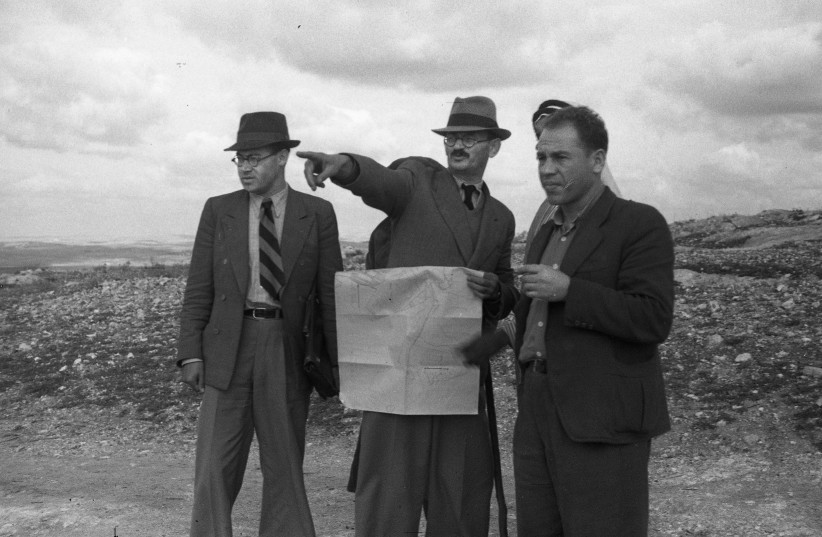
Israeli filmmaker tells the story of her family's Zionist history
What started as a film school assignment is now an Ophir Award-nominated documentary.
Sixties Fan
Diamond Member
- Mar 6, 2017
- 53,546
- 10,411
- 2,140
- Thread starter
- #4,711

Israeli Movie Star Gal Gadot’s New Film Smashes Netflix’s Opening Day Viewing Record
The stars of the Netflix film Red Notice: Ryan Reynolds, Gal Gadot, and Dwayne Johnson. Photo: Twitter. Gal Gadot’s new …
Sixties Fan
Diamond Member
- Mar 6, 2017
- 53,546
- 10,411
- 2,140
- Thread starter
- #4,712
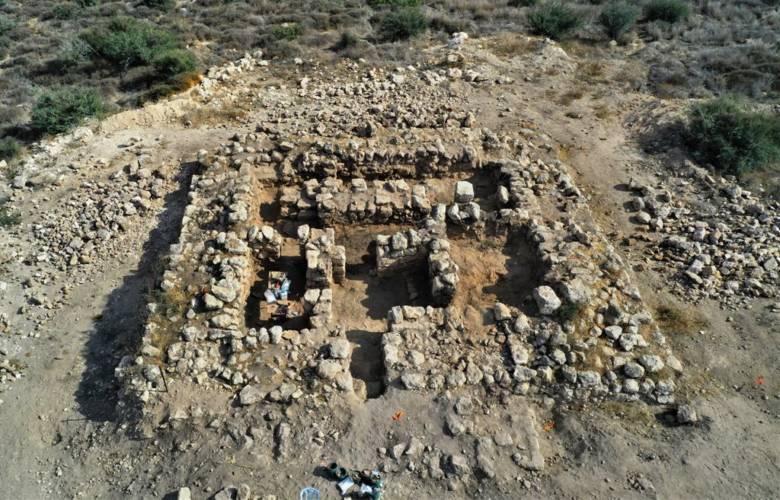
Ahead of Chanukah: Hellenistic Fortress Destroyed by Hasmoneans Uncovered | United with Israel
'The stories of the Maccabees are coming to life before our eyes,' enthused the Israel Antiquities Authority director. 'It is extremely exciting.'
Sixties Fan
Diamond Member
- Mar 6, 2017
- 53,546
- 10,411
- 2,140
- Thread starter
- #4,713

8 Jewish Fried Foods from Around the World | The Nosher
With eight days, and three meals a day, Hanukkah offers ample opportunities for trying out all kinds of fried foods. ...
Sixties Fan
Diamond Member
- Mar 6, 2017
- 53,546
- 10,411
- 2,140
- Thread starter
- #4,714

8 Latke Recipes for 8 Nights of Hanukkah | My Jewish Learning
Latkes are one of the most beloved Jewish comfort foods to enjoy all year, but especially for Hanukkah — and ...
Sixties Fan
Diamond Member
- Mar 6, 2017
- 53,546
- 10,411
- 2,140
- Thread starter
- #4,715

Cakey Crunch Sweet Potato Kugel | The Nosher
Most of my favorite recipes use wholesome, healthful ingredients that are local and seasonal. I don’t buy a lot of ...
Sixties Fan
Diamond Member
- Mar 6, 2017
- 53,546
- 10,411
- 2,140
- Thread starter
- #4,716
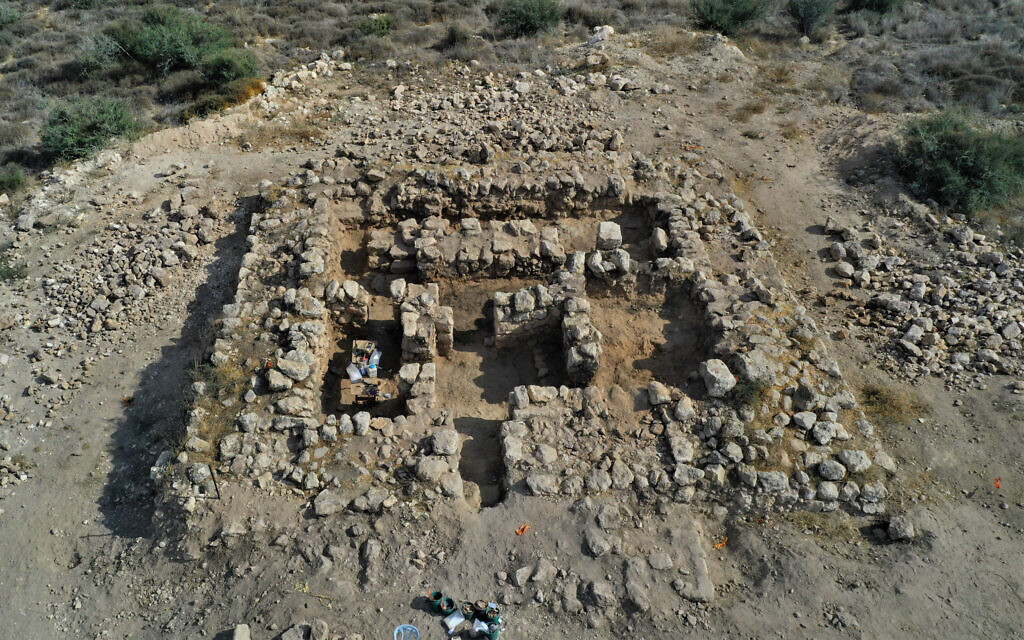
Newly found ancient fortified building seen as ‘tangible evidence’ of Hanukkah story
Weapons, coins, burnt wooden beams unearthed in Lachish Forest from structure said to be part of fortified line erected by Hellenistic army to protect city from Hasmonean offensive
Sixties Fan
Diamond Member
- Mar 6, 2017
- 53,546
- 10,411
- 2,140
- Thread starter
- #4,717

FIDF holds sixth annual bike ride in Israel in support of soldiers
The cyclists visited several IDF bases during their ride, from the Mount Hermon military base to the 91st Gallilee Division, which oversees security along the border with Lebanon.
Sixties Fan
Diamond Member
- Mar 6, 2017
- 53,546
- 10,411
- 2,140
- Thread starter
- #4,718
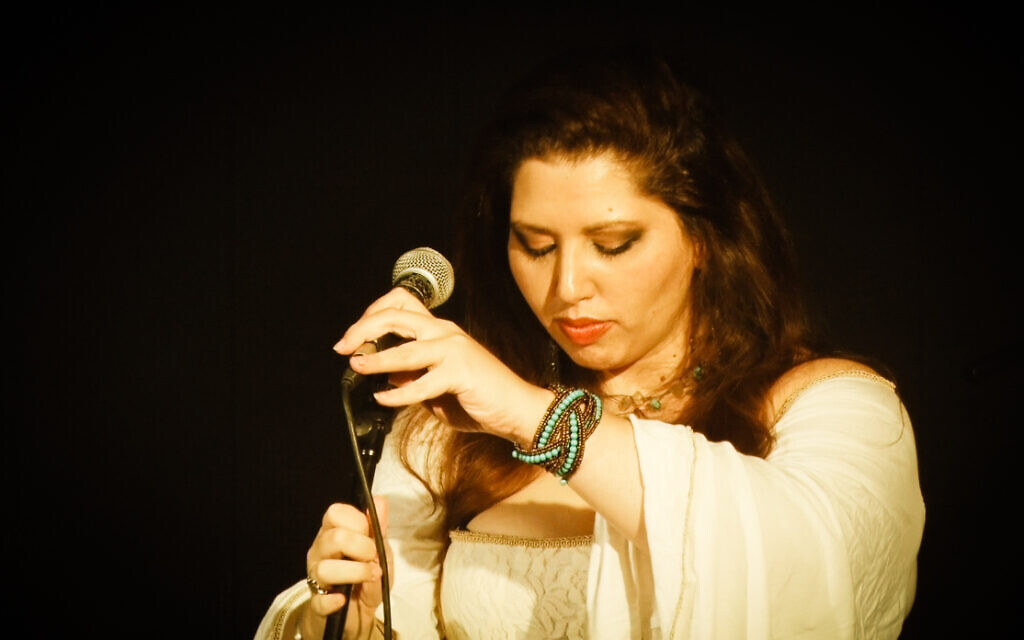
Podcast: Grab a sneak listen to the sounds and performers of the Oud Festival
Musicians Wisam Gibran and Nataly Oryon each discuss their inspiration and musical directions, prior to the annual event at Jerusalem's Confederation House
Mindful
Diamond Member
- Banned
- #4,719
ISTANBUL (JTA) — Imported Israeli TV has given Netflix several big hits in recent years, largely focused on the travails of Orthodox Ashkenazi Jews. The latest breakout show about a Jewish community is very different.
”The Club” is a Turkish drama about a Sephardic family in 1950s Istanbul, and it’s both reshaping what representation feels like for the roughly 15,000 Jews living in Turkey today and offering American audiences a window into an underexplored corner of the Jewish world.
The first episode of “The Club” (translated from “Kulüp”), which debuted on Netflix Nov. 5 and is available to view for U.S. subscribers to the streaming platform, begins with a Hebrew sabbath prayer and ends in a Ladino song. It only dives deeper from there, weaving the intricacies of Jewish observance and the country’s ever-present struggle between minority acceptance and assimilation into its plot.
From discussion of Shabbat rules, to the tradition of kissing a mezuzah when entering a room, to the scenes shot in Turkish synagogues, many Turkish Jews have found the show a revelation — especially given the fact that Jewish characters are usually relegated to stereotypes in Turkish productions. Turkish is the main language of the series, but there is some Ladino — the historical language of Sephardic Jewry, a mixture of medieval-Spanish, Hebrew and Aramaic alongside Turkish, Greek, Arabic and other languages — in every episode.
“Jewish people were just happy to see themselves,” Eli Haligua, editor of the Turkish Jewish news outlet Avlaremoz, told the Jewish Telegraphic Agency.

 www.jta.org
www.jta.org
”The Club” is a Turkish drama about a Sephardic family in 1950s Istanbul, and it’s both reshaping what representation feels like for the roughly 15,000 Jews living in Turkey today and offering American audiences a window into an underexplored corner of the Jewish world.
The first episode of “The Club” (translated from “Kulüp”), which debuted on Netflix Nov. 5 and is available to view for U.S. subscribers to the streaming platform, begins with a Hebrew sabbath prayer and ends in a Ladino song. It only dives deeper from there, weaving the intricacies of Jewish observance and the country’s ever-present struggle between minority acceptance and assimilation into its plot.
From discussion of Shabbat rules, to the tradition of kissing a mezuzah when entering a room, to the scenes shot in Turkish synagogues, many Turkish Jews have found the show a revelation — especially given the fact that Jewish characters are usually relegated to stereotypes in Turkish productions. Turkish is the main language of the series, but there is some Ladino — the historical language of Sephardic Jewry, a mixture of medieval-Spanish, Hebrew and Aramaic alongside Turkish, Greek, Arabic and other languages — in every episode.
“Jewish people were just happy to see themselves,” Eli Haligua, editor of the Turkish Jewish news outlet Avlaremoz, told the Jewish Telegraphic Agency.

Netflix’s ‘The Club’ offers a rare portrait of Turkish Jews, shattering historical taboos in the process - Jewish Telegraphic Agency
It's a hit throughout Turkey, but its Jewish themes, characters and use of Ladino have particularly endeared it to local Jews.
Mindful
Diamond Member
- Banned
- #4,720
Need some more “Fauda” in your viewing life?
The fourth season is on its way, as filming began this month in Israel. The latest installment of the Israeli action drama will include ten episodes, and is scheduled to launch on Israel’s Yes TV in mid-2022 and stream on Netflix worldwide.
With this latest season of the Yes Studios-produced series, “Fauda” — which means “chaos” in Arabic — will become the country’s longest-running action series, created by Lior Raz and Avi Issacharoff, and launched in 2016 on Netflix.
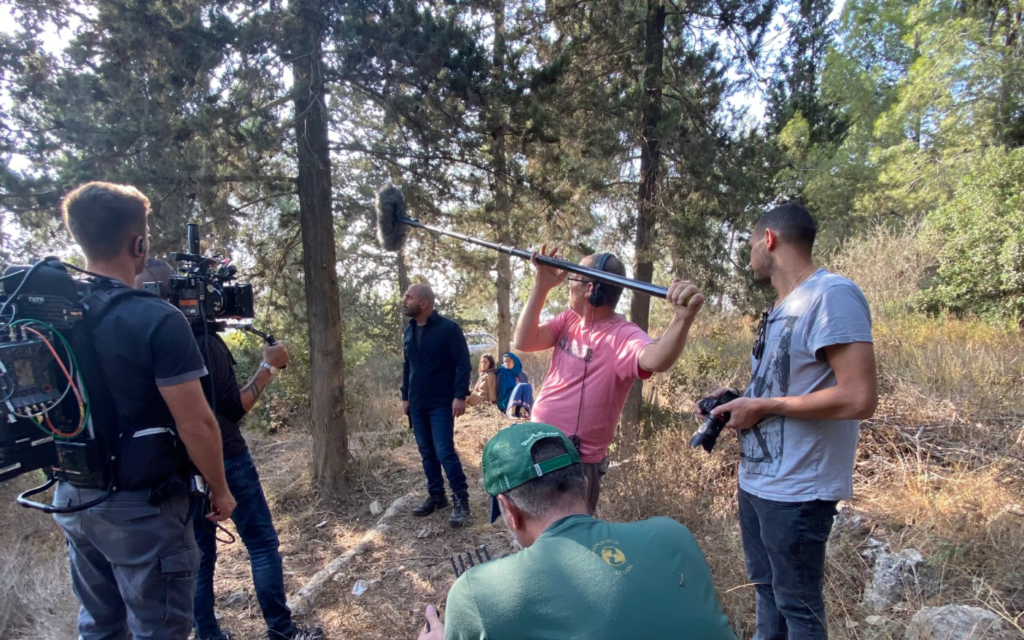
 www.timesofisrael.com
www.timesofisrael.com
The fourth season is on its way, as filming began this month in Israel. The latest installment of the Israeli action drama will include ten episodes, and is scheduled to launch on Israel’s Yes TV in mid-2022 and stream on Netflix worldwide.
With this latest season of the Yes Studios-produced series, “Fauda” — which means “chaos” in Arabic — will become the country’s longest-running action series, created by Lior Raz and Avi Issacharoff, and launched in 2016 on Netflix.

‘Fauda,’ Israel’s favorite action drama series, films fourth season
Latest installment will pick up where last season ended, with unrest on Lebanon border and in the West Bank
Similar threads
- Replies
- 14
- Views
- 1K
- Replies
- 52
- Views
- 8K
Latest Discussions
- Replies
- 49
- Views
- 273
- Replies
- 1K
- Views
- 105K
- Replies
- 82
- Views
- 490
Forum List
-
-
-
-
-
Political Satire 8037
-
-
-
-
-
-
-
-
-
-
-
-
-
-
-
-
-
-
-
ObamaCare 781
-
-
-
-
-
-
-
-
-
-
-
Member Usernotes 468
-
-
-
-
-
-
-
-
-
-
